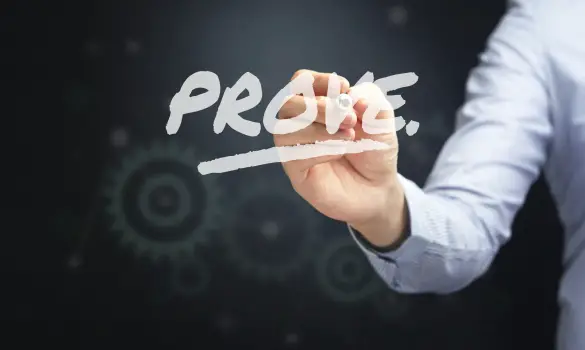Since its rollout in the early 2000’s E-Verify, the electronic, internet-based system that helps business check one’s employment eligibility has been subject to equal amounts of praise and criticism. While lauded for its key role in preventing fraud, some have found issues with its effect on small businesses. Today we are going to dig into how E-Verify works and explore both sides of the story.
What is E-Verify?
To put it simply, E-Verify is an online database that helps employers confirm the eligibility of potential workers as well as weed out fraud. This is the tool frequently used by most PEO services providers. It was initially created in 1996, as part of an immigration policy reform bill, and was put into use by companies in the early 2000’s. During the vetting process, a potential employee’s I-9 form is submitted and checked against databases backed by the Social Security Administration and Homeland Security. The goal is to look for inconsistencies between the government’s records and the info submitted by the candidate. If everything checks out, E-Verify will inform the company weather or not the candidate is legally allowed to work in the US.
Who Provides E-Verify Services?
The e-verify process is hosted by the U.S. Department of Homeland Security. This should be comforting to business owners using the services as part of their resume screening process. The U.S. DHS is one of the leading security institutions. That means they have some of the most extensive databases to check your employees with. These services serve to protect you and your business from getting taken advantage of. This is a considerable benefit that is afforded by the U.S. Department of Homeland Security program.
Small Business Benefits
One of the best benefits of the e-verify employment eligibility service is the solutions it provides small business owners like yourself, with only half the effort required for the patent application process. Self Check is the e-verify service that you use to confirm an applicant’s employment eligibility status, but it does more than just verify eligibility. This e-service provided by the Department of Homeland Security also provides solutions when problems arise with particular employment eligibility records. Using the Self Check service, you can learn exactly how to resolve any issue that crops up prior to hiring someone. This is a huge resource for small business owners, in particular.
Small Business Concerns
A lot of the backlash concerning the E-Verify program comes from small businesses. Although E-Verify is currently being used by over 600,000 businesses across the nation, it’s the smaller businesses that are slower to comply and implement the system in their workplace. According to a study done by the Center for American Progress, it was estimated that to implement the system it would cost a small business anywhere between $1,254 to $24,442. Although the service claims to be free, it’s the companies with small or no HR staff that gets hit the hardest with loss in loss of productivity and man-power learning the system and making sure they comply.
Businesses have also reported inaccuracies in the feedback from the system as well concerns with the amount of time needed to use and comply with E-Verify checks. Reports suggest that it can take up to 30 hours to become familiarized with the system and a success rate of around 46%.
Looking Towards the Future
While the laws requiring the use of E-Verify can vary from state to state, compliance tends to be trending lower due to the fact that employers face little to no repercussion for not using the system. For example, South Carolina had a compliance rate as high as 97% in 2012, which fell all the way to 55% the next year. This precipitous drop stems from the fact that businesses find taking the time to learn and implement the E-Verify system to be more trouble than it’s worth.
Overall, the goal of hoping every business small and large using E-Verify depends on working towards improving the accuracy of the reports from E-Verify as well as limiting the burden that it places on small businesses just trying to hire growth hackers. As long as there are no consequences with not complying with the laws requiring E-Verify, it seems as if many small businesses will continue to forgo using it until they feel it will help or they are forced into using it.
 Business First Family Business, Accounting, Finance, Investing, Marketing And Management
Business First Family Business, Accounting, Finance, Investing, Marketing And Management
